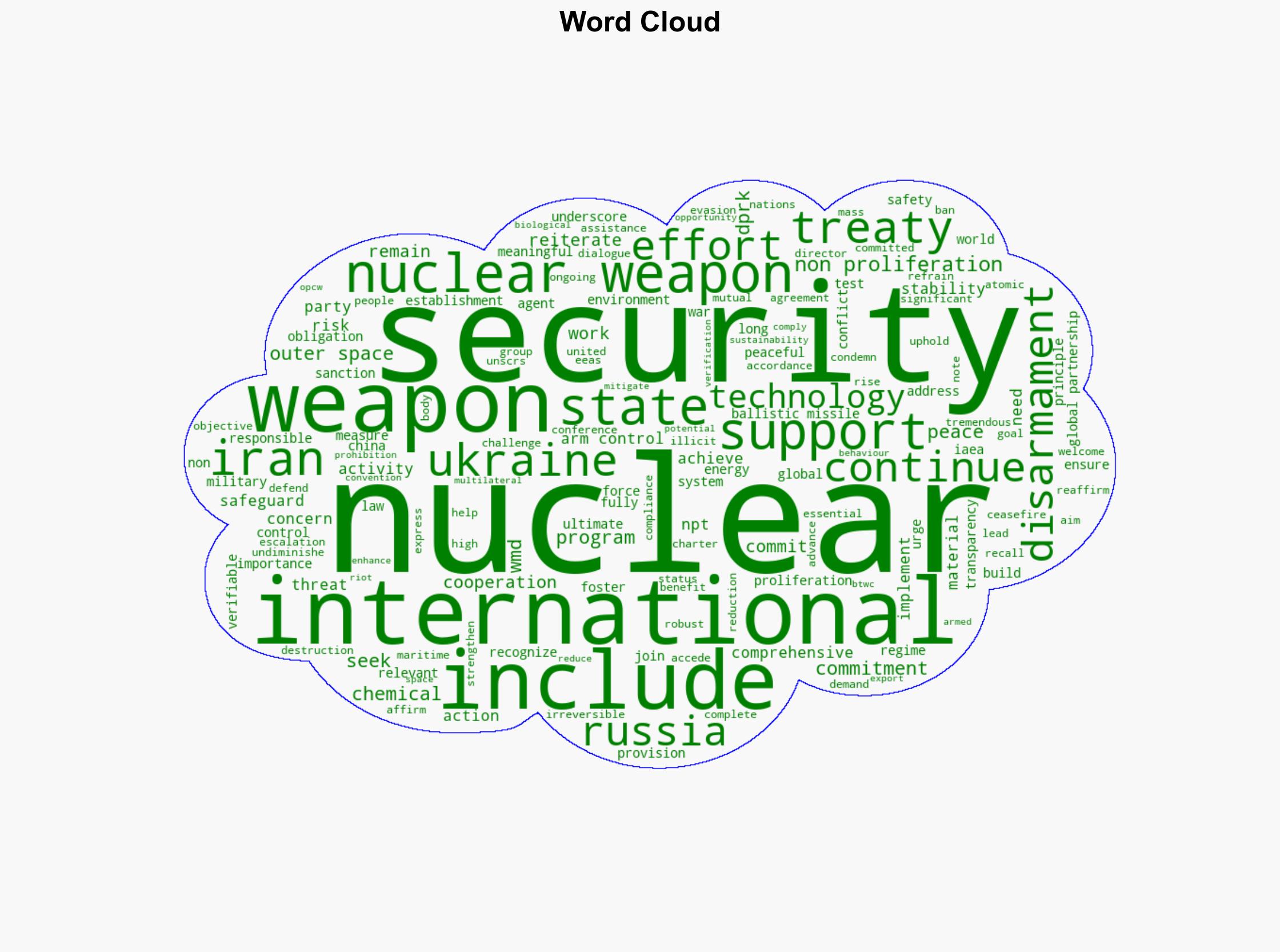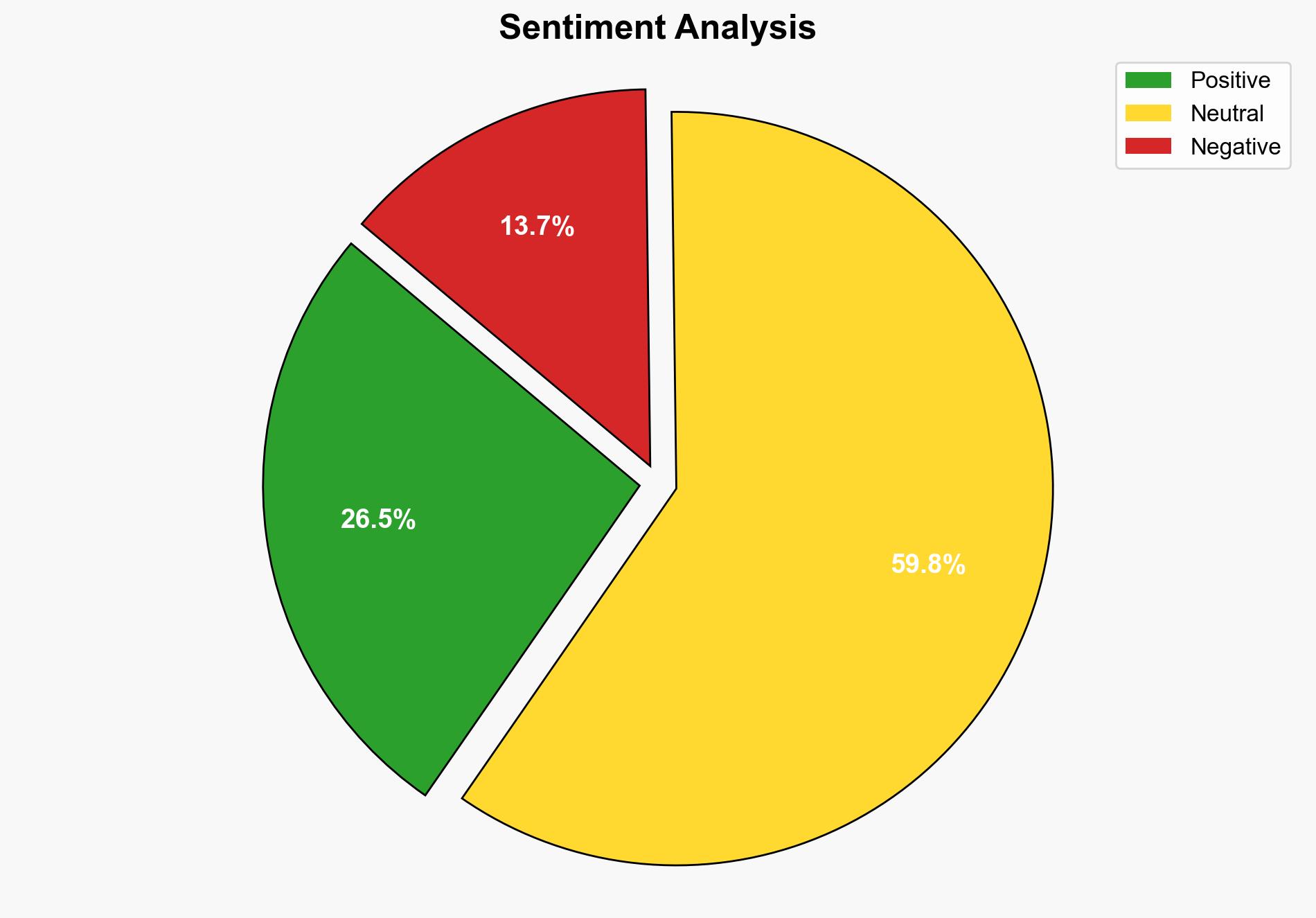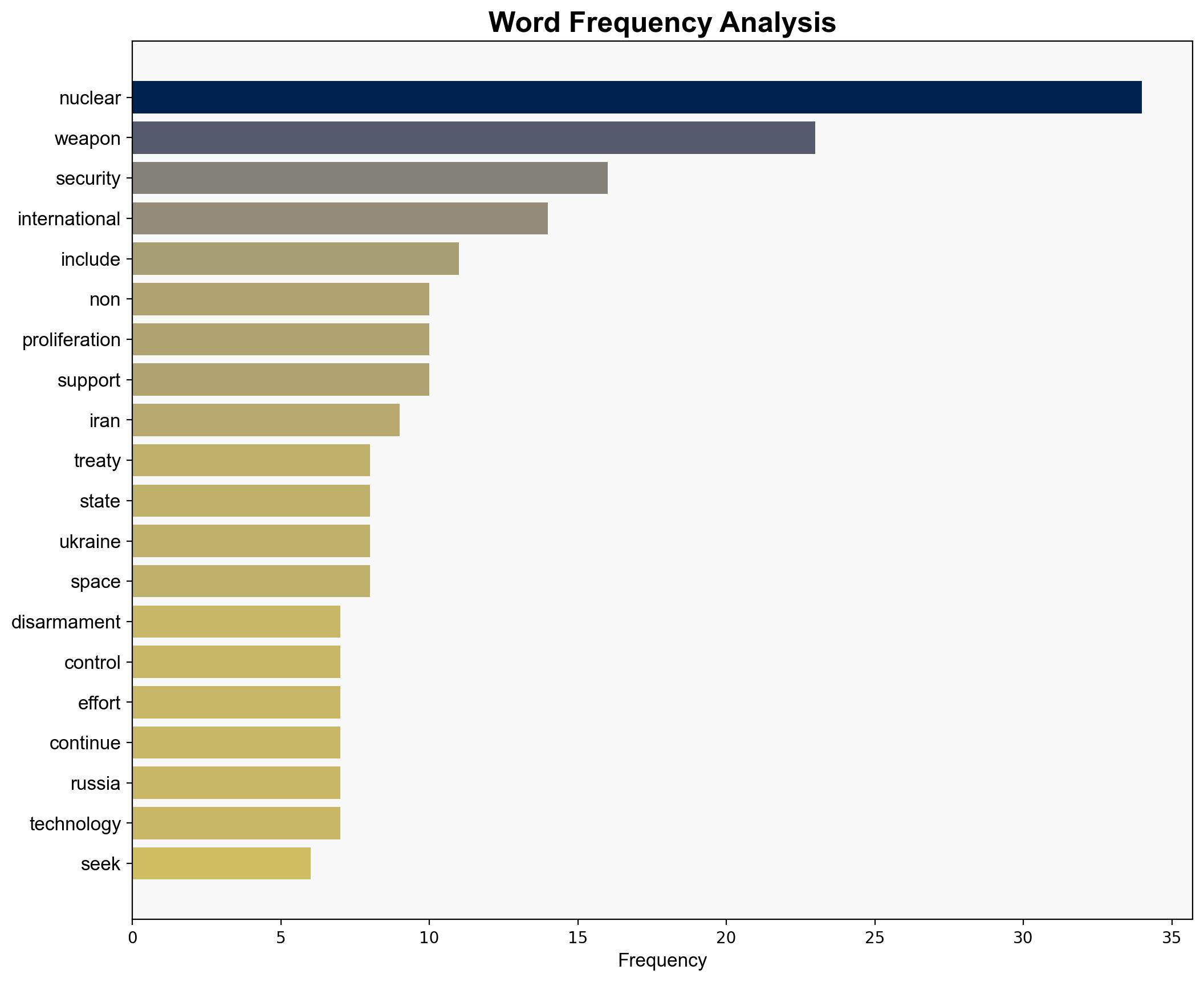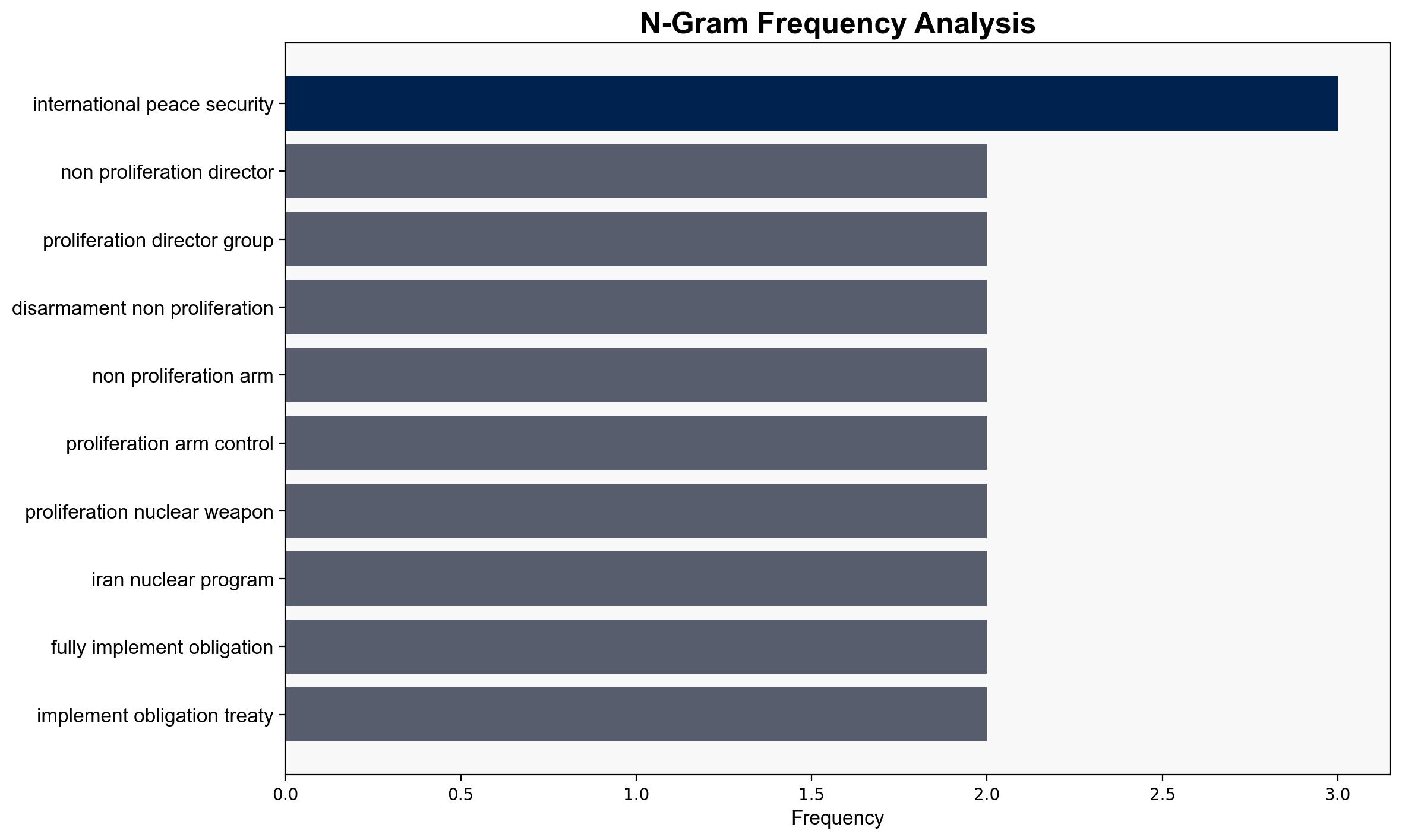G7 Statement of the G7 Non-Proliferation Directors Group – Globalsecurity.org
Published on: 2025-08-22
Intelligence Report: G7 Statement of the G7 Non-Proliferation Directors Group – Globalsecurity.org
1. BLUF (Bottom Line Up Front)
The G7 statement underscores a commitment to non-proliferation and disarmament amidst rising global tensions. The most supported hypothesis is that the G7 aims to strengthen international norms against nuclear proliferation through diplomatic engagement and pressure on non-compliant states. Confidence in this hypothesis is moderate due to geopolitical complexities and varying state interests. Recommended action includes enhancing diplomatic efforts and reinforcing international coalitions to address non-compliance.
2. Competing Hypotheses
1. **Hypothesis A**: The G7 is primarily focused on reinforcing international non-proliferation norms and frameworks to prevent nuclear proliferation and ensure global security.
2. **Hypothesis B**: The G7’s statement serves as a geopolitical maneuver to isolate specific states (e.g., Iran, DPRK) and align international opinion against them, rather than a genuine effort to achieve disarmament.
Using ACH 2.0, Hypothesis A is better supported as the statement emphasizes cooperation, transparency, and engagement with international bodies like the IAEA. Hypothesis B is less supported due to the lack of explicit geopolitical isolation tactics in the statement.
3. Key Assumptions and Red Flags
– **Assumptions**: The G7 assumes that diplomatic engagement and international pressure can effectively deter nuclear proliferation. It also assumes that all member states are equally committed to non-proliferation goals.
– **Red Flags**: Potential bias in assuming uniform commitment among G7 members. The statement’s lack of specific measures or consequences for non-compliance may indicate limited enforcement capability.
4. Implications and Strategic Risks
The G7’s approach could lead to increased geopolitical tensions if perceived as targeting specific states. Failure to achieve tangible progress in disarmament may undermine international norms and embolden non-compliant states. The risk of regional arms races, particularly in the Middle East and Korean Peninsula, could escalate if diplomatic efforts falter.
5. Recommendations and Outlook
- Enhance diplomatic channels and multilateral engagements to strengthen non-proliferation norms.
- Develop contingency plans for potential escalation scenarios, including regional arms races.
- Scenario Projections:
- Best Case: Successful diplomatic negotiations lead to renewed commitments to non-proliferation and disarmament.
- Worst Case: Increased geopolitical tensions result in regional conflicts and nuclear proliferation.
- Most Likely: Continued diplomatic efforts with incremental progress and ongoing challenges from non-compliant states.
6. Key Individuals and Entities
– International Atomic Energy Agency (IAEA)
– G7 Non-Proliferation Directors Group
– States of concern: Iran, DPRK
7. Thematic Tags
national security threats, nuclear non-proliferation, diplomatic engagement, geopolitical strategy





